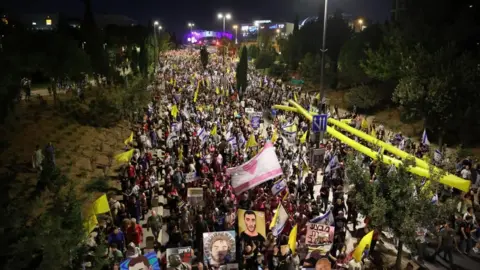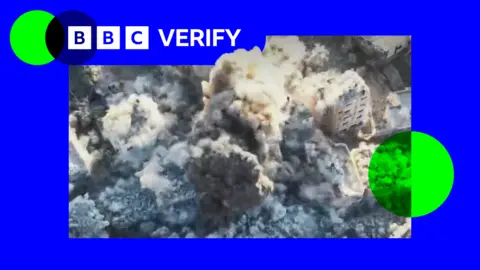The military actions marked the deadliest events since a ceasefire concluded a previous conflict between Israel and Hezbollah, characterized by extensive fighting. Israel's Defense Forces (IDF) defended the strikes, stating they were aimed at dismantling Hezbollah's military capabilities, which they claim violate UN resolutions and pose a threat to Israeli security. The Lebanese political and social landscape is facing renewed instability as the region remembers the past conflicts and the potential for warfare appears to be rising once more.
The Hezbollah group has not yet responded officially to the attacks, although its media outlet condemned the strikes as infringements on Lebanon's sovereignty. This incident has prompted fears among residents, particularly in Beirut suburbs, of an escalated conflict.
The ceasefire agreement brokered by US mediators last November stipulated certain military restraints for both parties, seeking to reduce tensions in the volatile region. Despite these efforts, Israel's ongoing military presence and recent operations indicate a fragile peace and persistent threats among actors involved.
Responses within Lebanon could vary significantly, with some aligning with Hezbollah's position and others supporting the Israeli stance on national security. As the situation unfolds, the ramifications for Lebanese civilians and political dynamics remain uncertain, warning of a potential return to armed conflict.
The Hezbollah group has not yet responded officially to the attacks, although its media outlet condemned the strikes as infringements on Lebanon's sovereignty. This incident has prompted fears among residents, particularly in Beirut suburbs, of an escalated conflict.
The ceasefire agreement brokered by US mediators last November stipulated certain military restraints for both parties, seeking to reduce tensions in the volatile region. Despite these efforts, Israel's ongoing military presence and recent operations indicate a fragile peace and persistent threats among actors involved.
Responses within Lebanon could vary significantly, with some aligning with Hezbollah's position and others supporting the Israeli stance on national security. As the situation unfolds, the ramifications for Lebanese civilians and political dynamics remain uncertain, warning of a potential return to armed conflict.



















